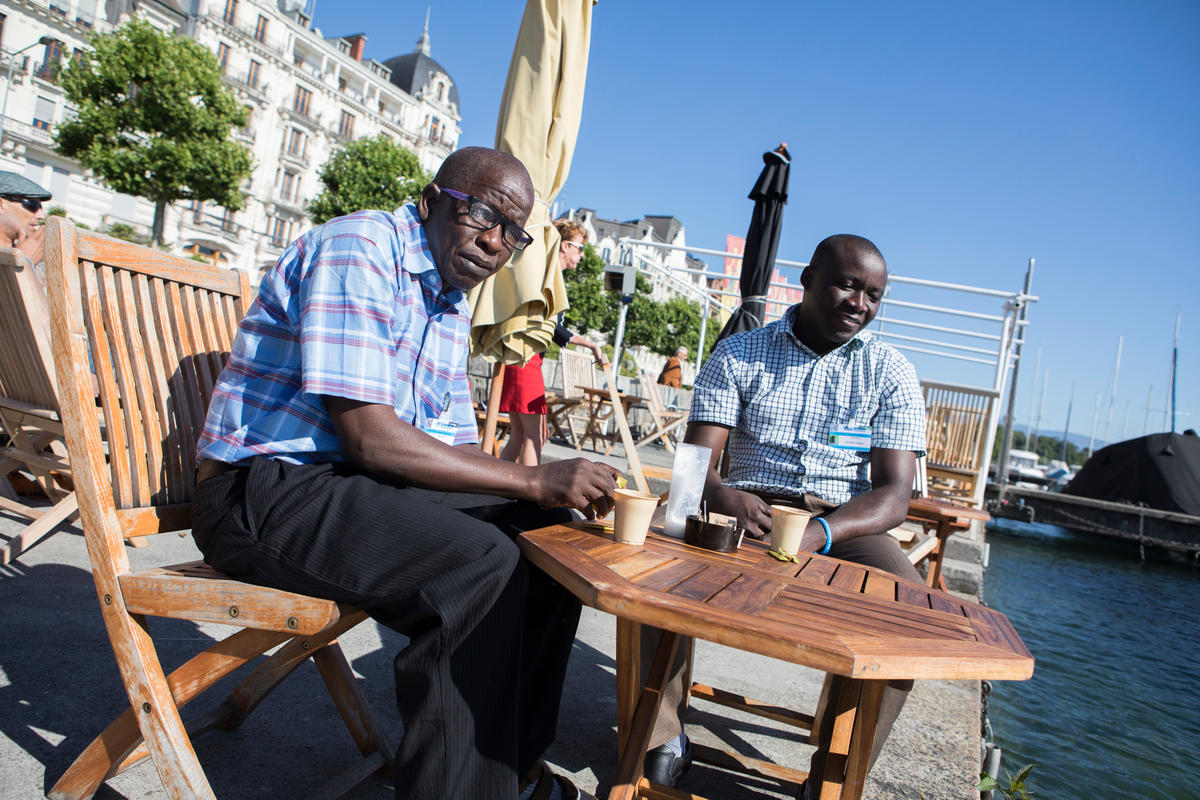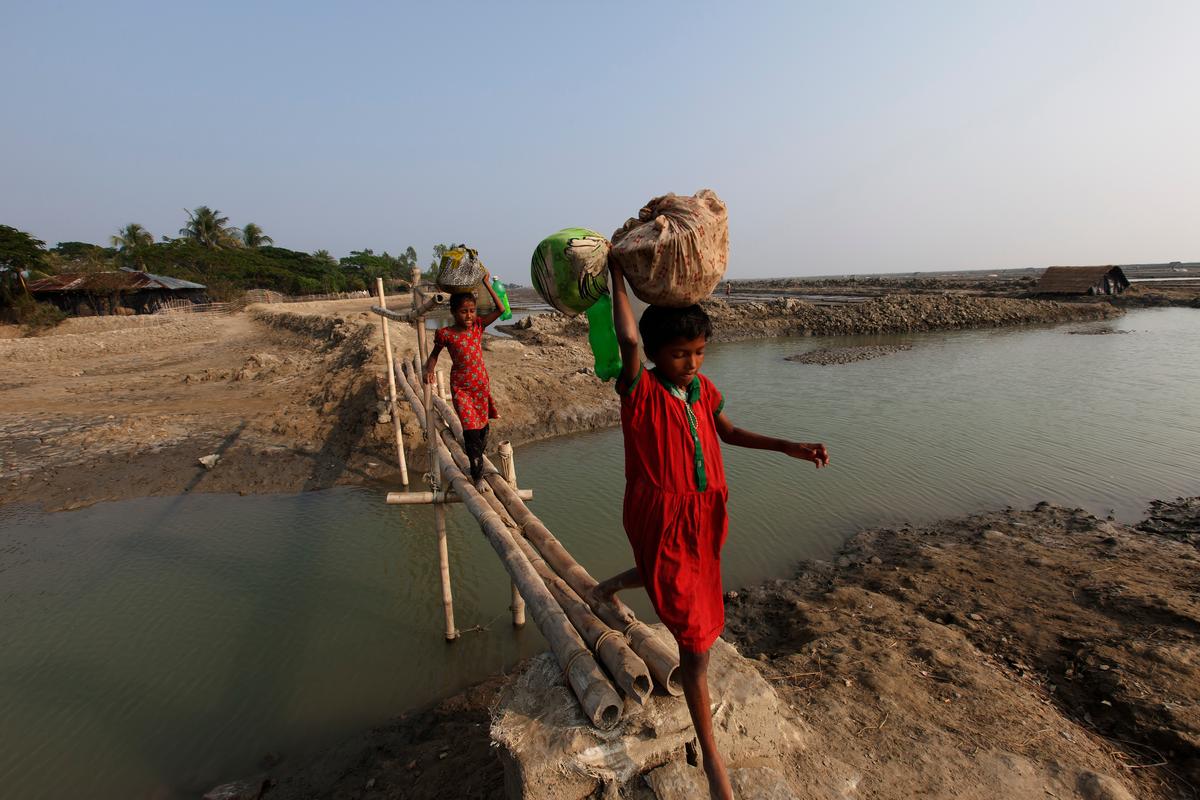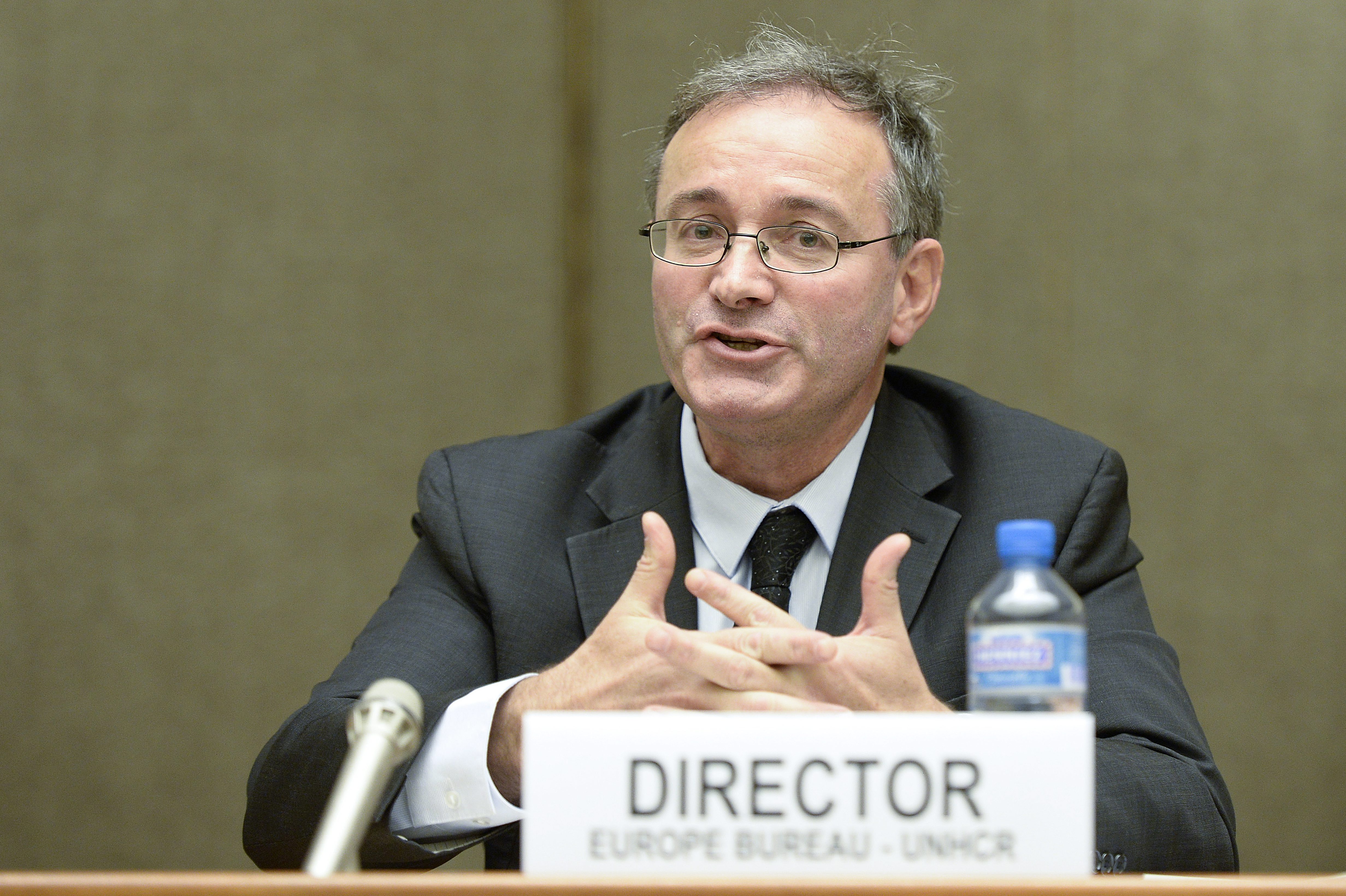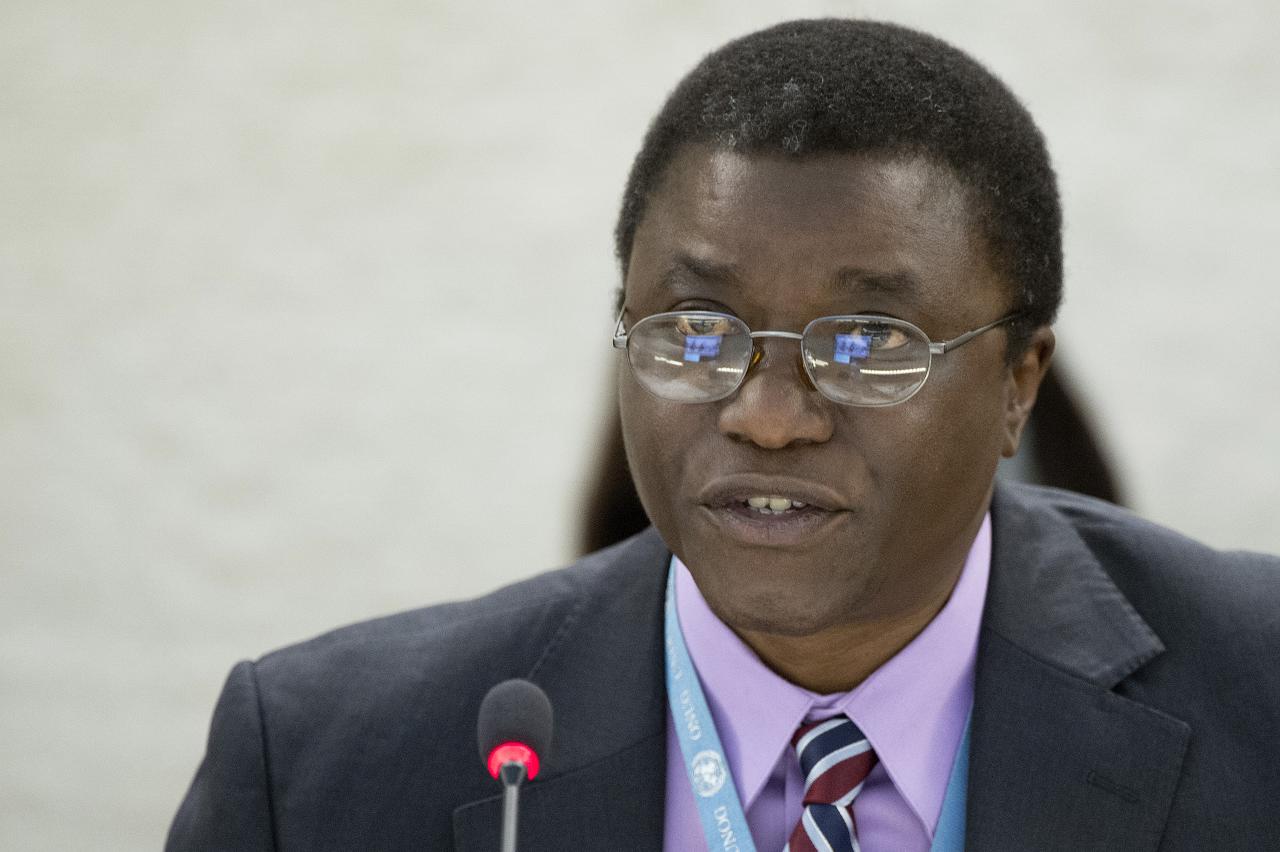Q&A: US State Department Bureau aids the displaced while promoting humanitarian policies
Q&A: US State Department Bureau aids the displaced while promoting humanitarian policies

WASHINGTON, DC, United States, September 13 (UNHCR) - Eric Schwartz is responsible for the US State Department's Bureau for Population, Refugees and Migration. The bureau aids those uprooted by conflict while integrating humanitarian principles into US foreign policy. Before becoming Assistant Secretary of State last year, Schwartz served as the United Nations' special envoy for tsunami recovery, working under former US President Bill Clinton. He also served at the Office of the UN High Commissioner for Human Rights, working with Sergio Vieira de Mello, who was later killed in an attack on the UN compound in Baghdad. UNHCR Communications officer, Tim Irwin, spoke to Schwartz at his office in Washington, DC. Excerpts from the interview:
In your current position, you've gained first hand knowledge of refugee situations. What have you taken away from those visits?
The principal observations that I came away with are a sense of the enormity of the challenges and the suffering that individuals who are affected by persecution and conflict confront. Some of that suffering is unimaginable, especially when you consider that so many of the victims are some of the most vulnerable people - children in particular. The second observation that I came away with is an enormous appreciation for the ability of people not only to endure in such awful circumstances, but actually to sustain hope and a belief in the possibility of a brighter future. That to me is the most significant and really remarkable observation from all of my travels.
Has your work with the UN had any impact on how, in your current role, you view UN humanitarian efforts?
I suspect it gives me a greater appreciation of the strengths and weaknesses of international humanitarian organizations. I think that international humanitarian organizations do a pretty good job in providing life-sustaining assistance in a variety of emergencies, both complex emergencies as well as disasters that result from natural hazards. But I also think that my experience with international organizations gives me a much greater appreciation of where they need to bring up their game, or where the international community needs to improve its response capabilities. I think that they still waste too much time and still find themselves in certain emergencies running into each other, and those weaknesses impact the lives of real people. So while I think the international humanitarian community and international humanitarian organizations do a good job, there is a long way to go.
The United States is UNHCR's largest donor. Why is it important to you to support our mandate?
If your mandate is about protecting the most vulnerable victims of conflict, and persecution, then it's important to support that mandate because a critical component of the United States' foreign policy is advocacy and assistance on behalf of the world's most vulnerable citizens. We do that because it is an expression of American and universal values and we would do it under any circumstances. But we also do it because it's a smart thing to do. By providing assistance and sustainable solutions we offer the prospect of hope and reconciliation to people in circumstances where despair might otherwise prevail. Such despair is not good for the individuals involved, it's not good for the world, and it's not good for our foreign policy.
The US is the largest refugee resettlement country in the world. Around 75,000 refugees arrived here in fiscal year 2009. Does the economic climate in the US make resettling refugees more challenging?
Of course it's more of a challenge when economic circumstances are more difficult. The number of months it takes on average for people to find employment increases in circumstances like this, but under many prior administrations we've also experienced recessions. In fact, we had recessions during the first Bush administration and the Reagan administration and during both of those recessions we sustained very generous levels of refugee resettlement. We have to redouble our efforts to enable people to transition successfully in the United States and through the provision of not only basic assistance but employment, education and other training opportunities.
The economy could also be a factor during mid-term elections in November. At this point, is it more difficult to get humanitarian issues and principals on the agenda?
In fact what we find is that support from Congress for our programme is enduring and doesn't really seem to be substantially affected by changes and the kinds of challenges you described. To be short, I guess there may be some reluctance to greatly expand our budgets at a time when our economic challenges are so substantial, yet at the same time Congress has worked hard to safeguard all essential programmes. So while I expect we may be operating in a bit of a more challenging environment, I would say relative to other donors around the world, the United States is doing pretty well and certainly not suffering from donor fatigue.
Is there a refugee or a displacement situation which you're particularly concerned about?
I get concerned about situations where the magnitude of the suffering is very high and the amount of international attention is not as great as it might be. For me the situation in eastern Congo is of particular concern because, while certainly a lot of aid has gone in there, we haven't seen systemic improvement to the protection situation in that part of the world, and that makes me very concerned.









